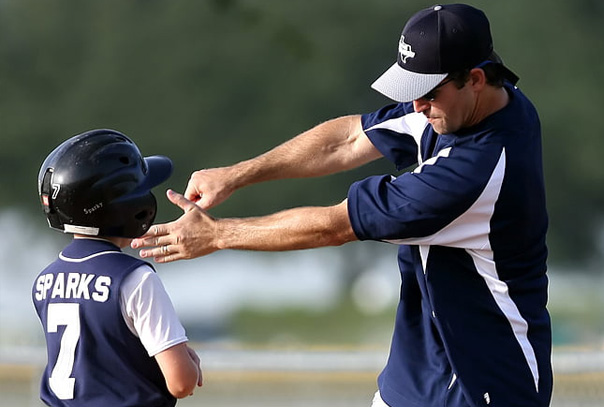 Great coaching takes an incredible amount of time, thought, planning, organization, education, training and experience. All of these things ultimately lead to very detailed practice and gameplans, which result in formative instruction, leadership, and mentorship. Throughout this process, of course, coaches say and do many impactful things—some very helpful and wise, some not so much. But coaches should not overlook and underestimate the power and value of what they don’t say and do.
Great coaching takes an incredible amount of time, thought, planning, organization, education, training and experience. All of these things ultimately lead to very detailed practice and gameplans, which result in formative instruction, leadership, and mentorship. Throughout this process, of course, coaches say and do many impactful things—some very helpful and wise, some not so much. But coaches should not overlook and underestimate the power and value of what they don’t say and do.
Coaches wonder frequently why the performance of their teams in games does not match what they were taught in practice. And yet from the moment the players step on the field, coaches are constantly talking at them. Not enough time is spent listening to the players to connect with and understand them as people—what they are thinking in the moment and what is happening with them outside of the sport. This relationship is the essential foundation for all learning.
Coaches are so quick to analyze and correct the good or bad result of a play, they fail to first address the player’s deficiencies in athleticism, physiology or psychology. The development of a hitter’s swing or a pitcher’s delivery may first require improving the mobility of their body or the stability of their mental approach.
If coaches want to see more consistency in the way their teams perform at practice and play in games, they need to end every practice with a game simulation or scrimmage where the coaches say and do…nothing. They need to simply observe what the players have learned, because despite the coach’s unfortunate efforts to micromanage every thought and step of their players during games, the outcome will still ultimately depend on what the players do on their own.
The same is true for the self-esteem of the players. If our goal as coaches is to develop strong leaders, the players will feel best about their play in the game and its ultimate result if they know they accomplished it on their own and not as a result of being a puppet. I think if coaches would spend a few hours in school attending classes, they would be amazed at what their players are required to learn—and what they are capable of remembering. Trust your players’ training and let them play!
Finally, every single day, slow down and appreciate how precious these moments are with your players. Say less about the game and just recognize and acknowledge the courage it takes for your players to simply step up to bat or onto the mound.
The sounds of the ballpark and game, the smell of the air and grass, the feel of a baseball in your hand, the innocent faces of your players; they will all be gone more quickly than you will ever imagine. Fill these precious moments in coaching with more smiles, hugs, handshakes, laughter and thumbs up. When all is said and done, it will be what you did not say and did not do that you and your players will remember.
Adam Sarancik is the owner of Elevate Sports Academy which trains youth in sport skills, athleticism, nutrition, and career and college counseling. He is the author of Coaching Champions for Life – The Process of Mentoring the Person, Athlete and Player and its companion book, Takeaway Quotes for Coaching Champions for Life.